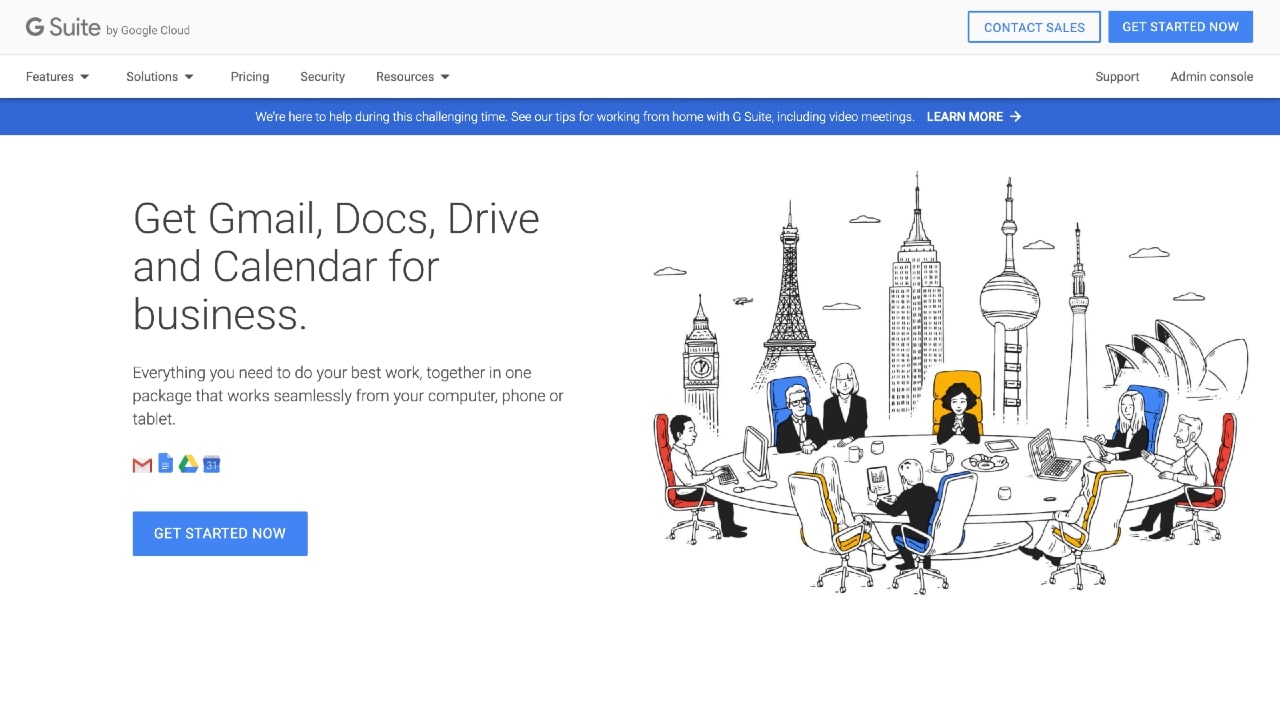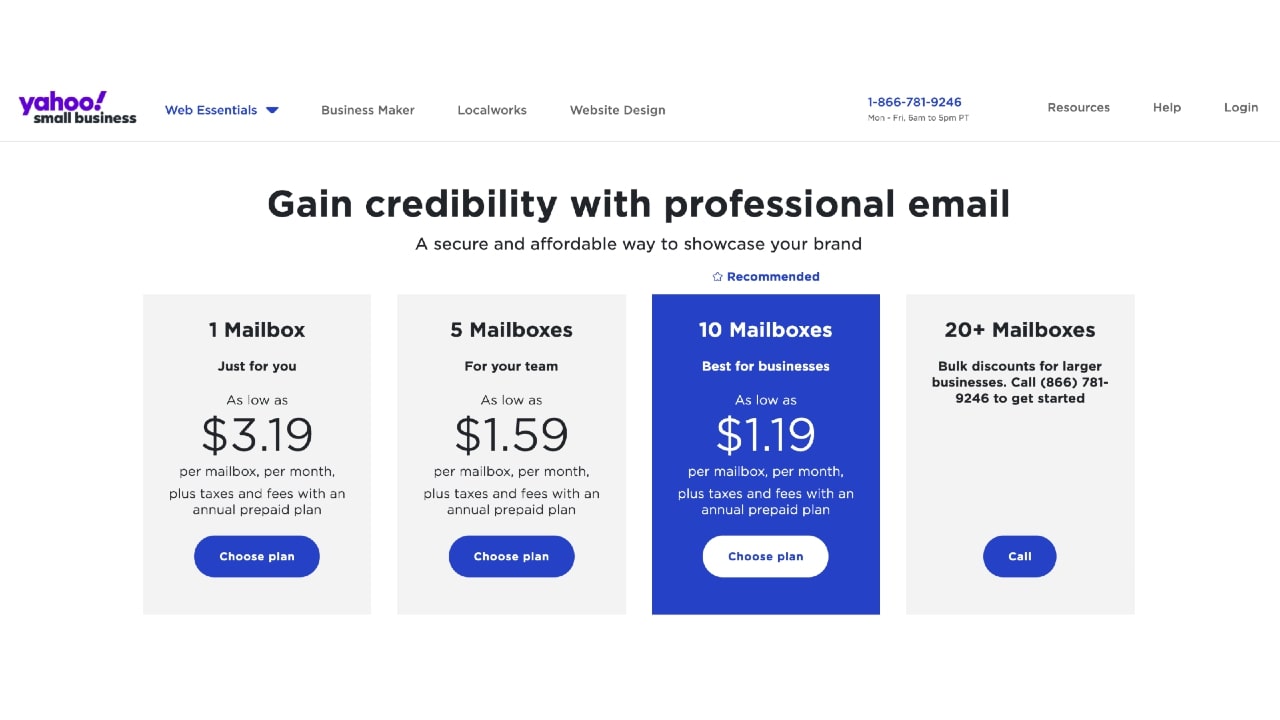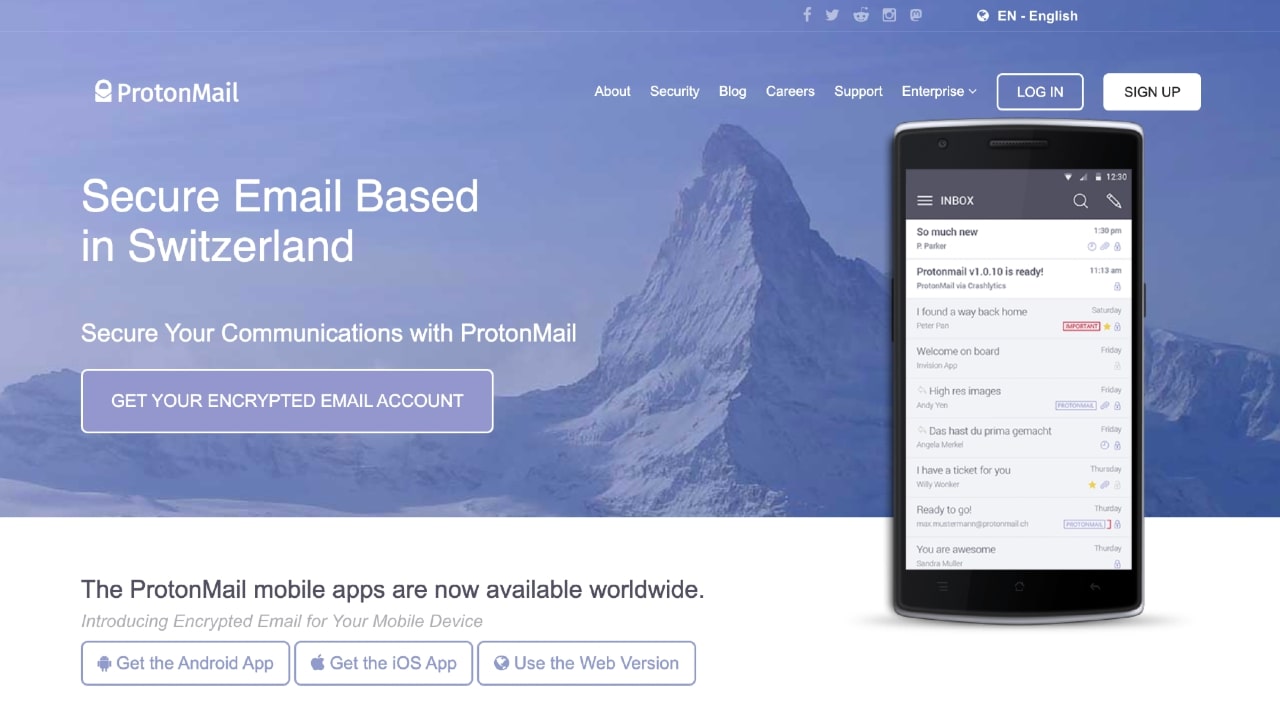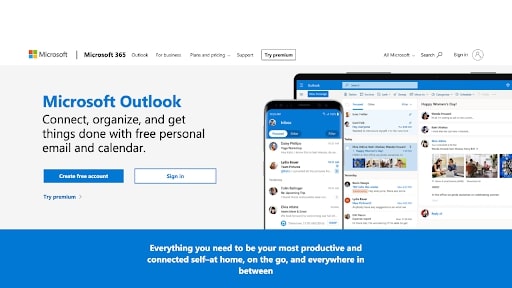One of the key decisions you need to make when starting, or even scaling, a business is which email provider to use. Not only will choosing the best email provider ensure your internal communication is streamlined and efficient, but it will allow you to communicate easily with your customers too.
There are many professional email plans out there, but the first decision you need to make is whether or not you should pay for the service.
In this article, we’ll review a selection of paid and free plans from leading email providers Gmail, Outlook, Yahoo Mail, and ProtonMail, giving you all the information you need to decide whether or not this extra expense could benefit your business. As we’re comparing both free and paid plans, we’ve combined the pricing and features sections for the sake of this article.
- The best email hosting providers
- The 30 most-asked email questions answered!
- Best email clients: Free and paid apps and software

Features
Gmail’s free service is the industry leader, and for good reason. Not only does it come with a healthy 15GB of storage, but you can also manage other email accounts from your Gmail interface and easily filter messages into categories for reference.
Gmail’s paid option, G Suite, starts at $6.00 per user, and as well as 30GB of space on the most basic plan, it includes 99.9% guaranteed uptime, a custom email address, a shared calendar, Google apps, and more. G Suite is a very attractive option for businesses keen to keep all documentation and correspondence in one place.
Although now eclipsed by Gmail, Outlook has been a major email provider for decades. Its free service includes 15GB of mailbox storage, automatic recognition of important emails, and apps for useful services like Yelp, Evernote, and PayPal.
Office 365, Outlook’s paid service, starts at $7 a month and includes ad removal, a massive 50GB inbox—which could be useful as your business scales up—1TB of OneDrive storage, offline working, and the Microsoft Office suite.
It may have fallen off the radar somewhat, but Yahoo Mail still offers users a comprehensive free email service that can compete with other leading providers. Yahoo Mail’s free plan includes a whopping 1TB of storage, privacy-focused, single-use email addresses, Facebook, SMS, POP, and IMAP integration, and more.
Like the other providers, Yahoo Mail allows you to connect a custom email address to your business domain and includes a shared calendar and other business-friendly features. You don’t get the smart office tools offered by Gmail and Outlook, but plans start at just $3.19 per user per month when billed annually.
Although the free plans discussed above are relatively generous, if lacking in business-specific features, Proton Mail’s free version has a storage limit of only 500MB—insufficient for even the smallest start-up. This tiny allocation, along with a limit of 150 messages per day, reflects the fact that ProtonMail isn’t advertised as a large-scale provider but as a service dedicated to user security.
To get anything close to the paid plans offered by its competitors, you’d need to opt for ProtonMail’s Professional package at an expensive $8 per month per user. It includes advanced security features like end-to-end encryption, self-destructing messages, full anonymity, and a secure SSL connection. Still, we’d only recommend this plan to users particularly concerned about email security.

Performance
When it comes to the interface, organizational tabs and tools, and compatibility with other email providers or third-party apps, there was little difference between the free and paid-for services of our providers. Gmail and Outlook, in particular, have a well-organized, easy-to-navigate email interface that makes it easy for business owners to execute and manage emails.
However, the extra features offered with all providers’ paid plans give business owners much more power and performance.
Gmail and Outlook are part of Gsuite and Office 365 respectively, and both of these software bundles include very useful office tools with applications across your business.
However, neither Yahoo Mail nor ProtonMail come with a suite of office tools. That said, Yahoo Mail’s paid-for plans do enable you to manage all of your mailboxes on a single screen and access analytics tools so you can better understand and optimize the role of email in your business.
In regards to performance, ProtonMail is best viewed as an add-on to your existing email provider, and can be integrated with a third-party client that supports IMAP and SMTP, like Outlook. It provides extra security for sensitive correspondence using end-to-end encryption and other advanced techniques.

Support
As a rule, support is much better with paid-for email plans. Gmail promises 24/7 support over the phone for its G Suite customers. However, free Gmail users are required to consult the help center or community channel.
Outlook provides its paid-for email users with phone support or help over instant chat, while Yahoo Mail’s support services are prioritized for paying clients.
Meanwhile, ProtonMail offers multi-user support for subscribers of its Professional plan. Otherwise, there is a basic FAQ section on its website.

Verdict
Although the best free email service providers offer more than enough storage, compatibility, and organizational tools for a personal email account, they aren’t designed for multiple users.
For a minimal cost, paid-for email providers can seriously help with the organization of your team’s correspondence and enable you to share documents easily. What’s more, the ability to connect custom email addresses to your domain gives your business added professionality and, especially during an outreach campaign, could mean the difference between a sale or a miss.
- The best email hosting providers
- The 30 most-asked email questions answered!
- Best email clients: Free and paid apps and software
from TechRadar - All the latest technology news https://ift.tt/3jDy4PM
via IFTTT
0 التعليقات: